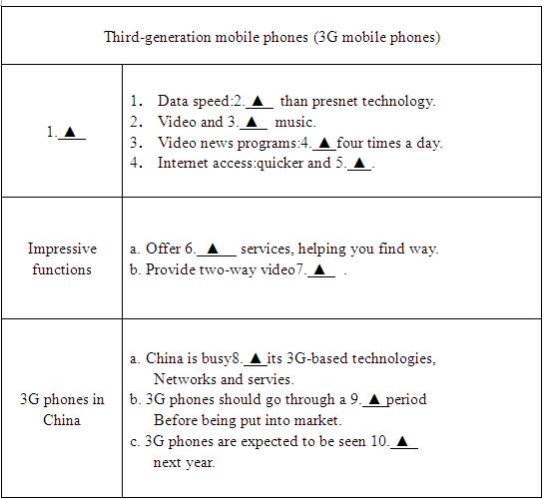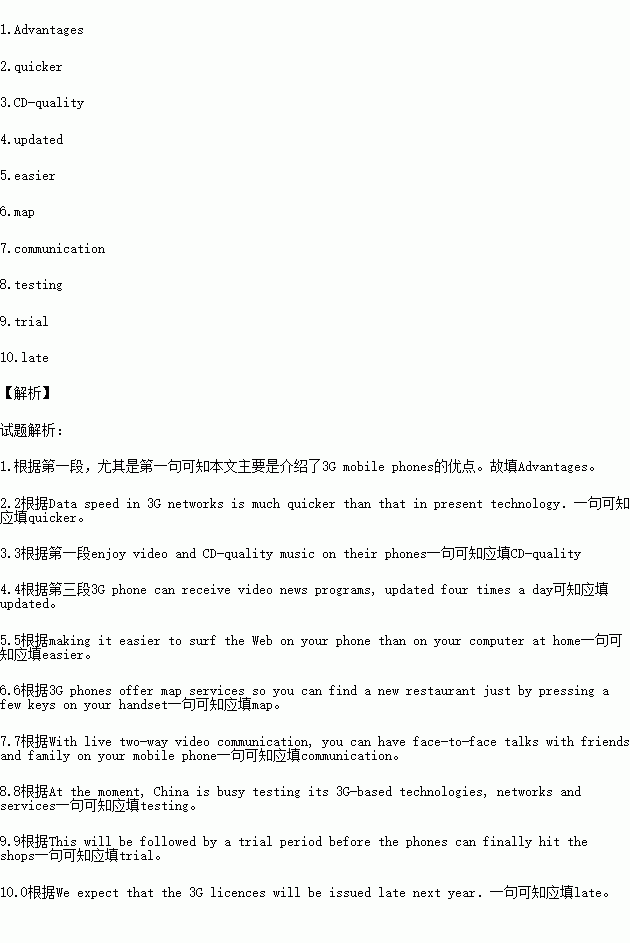题目内容
请认真阅读下列短文,并根据所读内容在文章后表格中的空格里填入一个最恰当的单词。
注意:每个空格只填1个单词。请将答案写在答题卡上相应题号的横线上。
Third-generation mobile phones, known as 3G, are the next big step for the telecom industry.Data speed in 3G networks is much quicker than that in present technology.This means users can have high-speed Internet access and enjoy video and CD-quality music on their phones.
"Mobile data is not a dream; it's not an option but a requirement," said Len Lauer, head of a U.S.Communications company, Sprint PCS, at a 3G conference in Bangkok earlier this month.
With 3G, you can forget about text messages telling you yesterday's news; a 3G phone can receive video news programs, updated four times a day.Internet access will also be much quicker, making it easier to surf the Web on your phone than on your computer at home.
Face-to-Face video calls
Don't worry about getting lost, 3G phones offer map services so you can find a new restaurant just by pressing a few keys on your handset.
However, the most impressive part of 3G technology is video calling.With live two-way video communication, you can have face-to-face talks with friends and family on your mobile phone.
Many European countries have already launched the services.In May 2000 the U.S.Government issued five license to run 3G wireless services, while the first 3G phones arrived in Italy in March this year.
International telecom companies can't wait to sell 3G in China, the world's largest mobile telecommunications market.But they will have to be patient.At the moment, China is busy testing its 3G-based technologies, networks and services.This will be followed by a trial period before the phones can finally hit the shops.
"We need to create a pool of 3G customers before the large-scale commercial launch of the service," said Fan Yunjun, marketing manager for Beijing Mobile."We expect that the 3G licences will be issued late next year."

